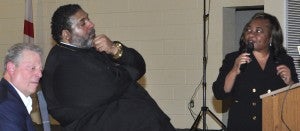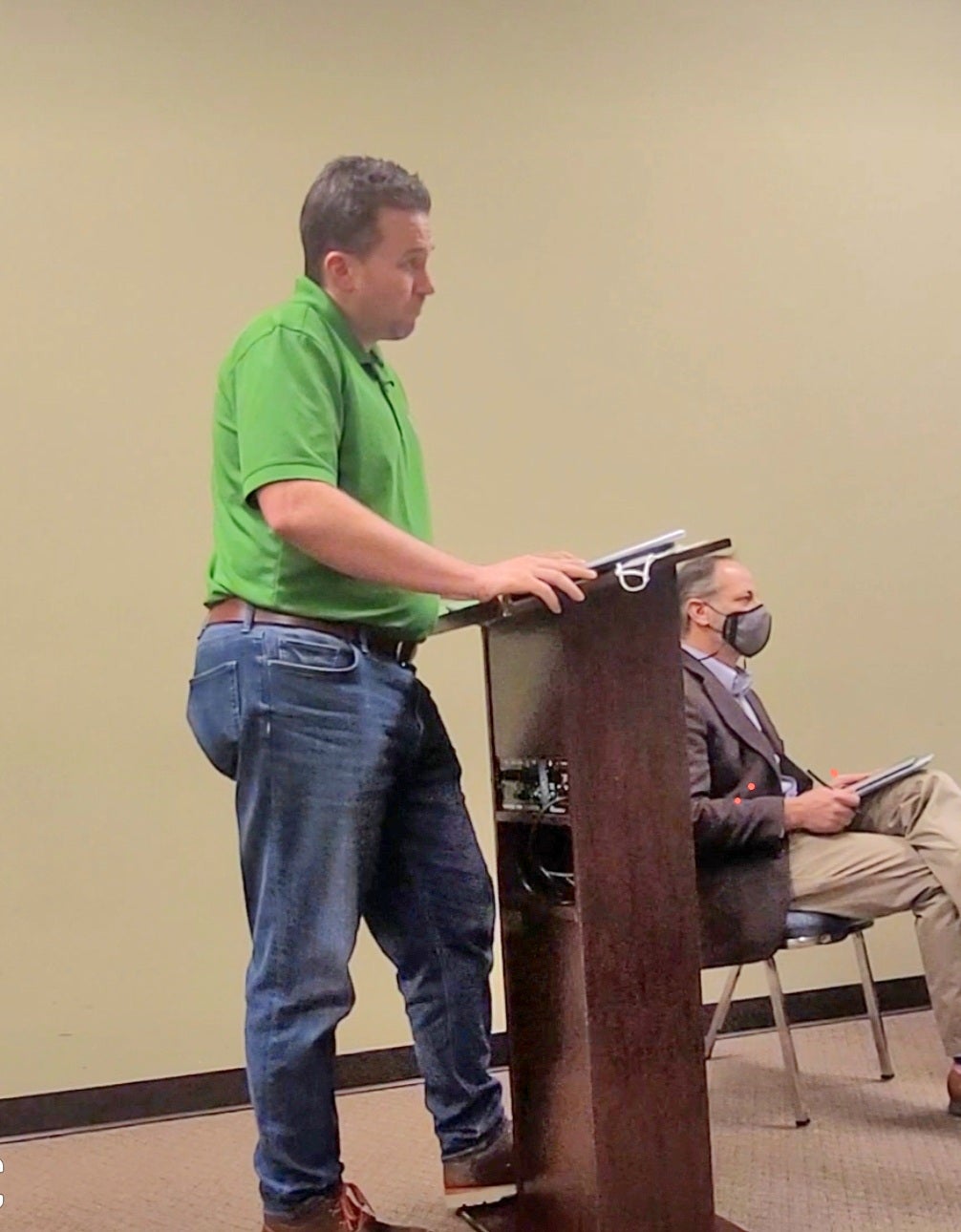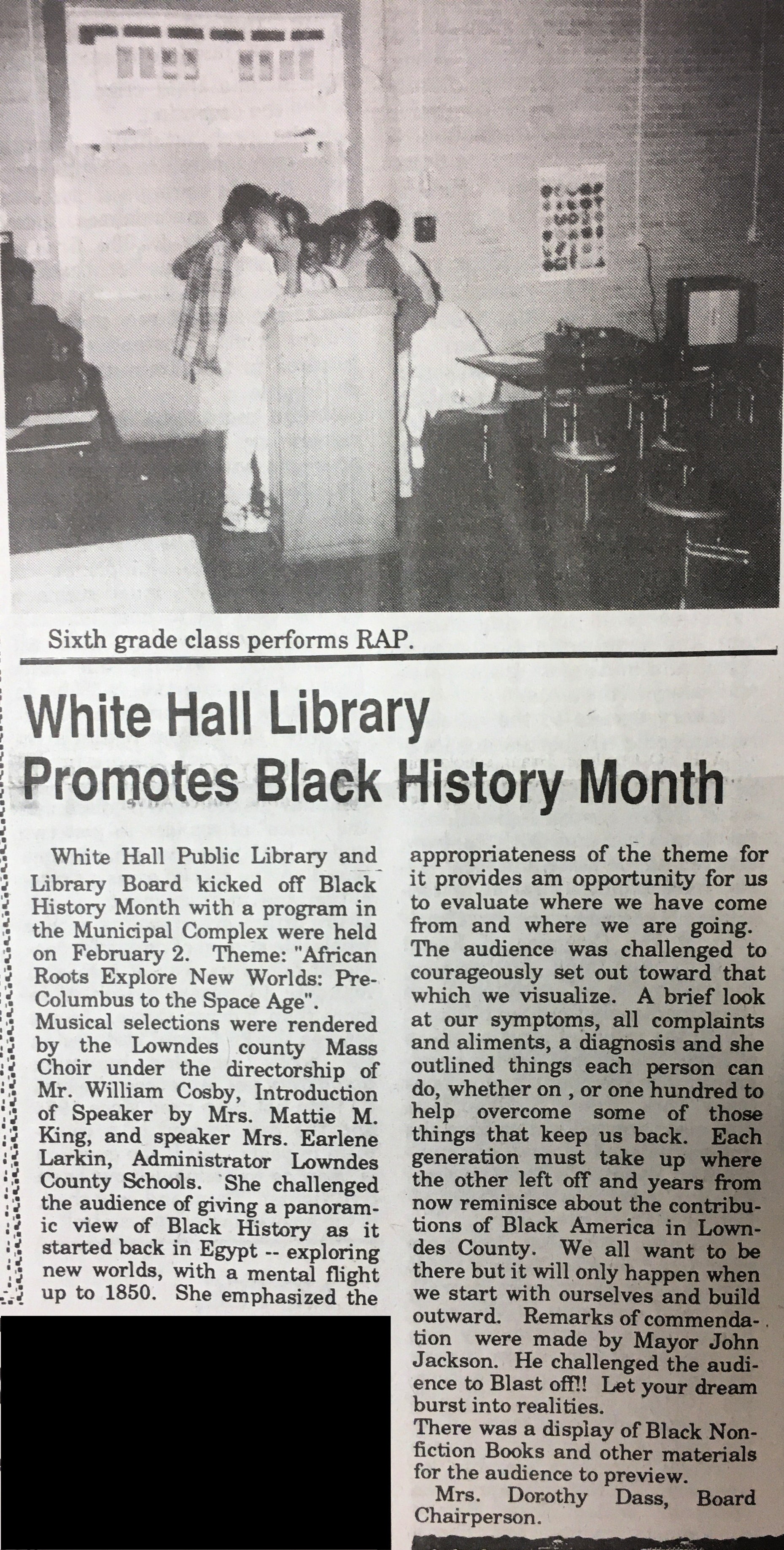On poverty, racism, ecological devastation, former VP Gore/Barber visit White Hall/Lowndes
Published 4:19 pm Thursday, February 21, 2019
|
Getting your Trinity Audio player ready...
|
By Fred Guarino
The Lowndes Signal
Former Vice President Al Gore and the Rev. Dr. William Barber II visited Lowndes County Thursday, Feb. 21 for a town hall event highlighting the connection between poverty, racism, and ecological devastation.
Gore and the Rev. Barber joined Catherine Coleman Flowers, a native of Lowndes County and founder and executive director of Alabama Center for Rural Enterprise Inc. (ACRE), at the Jackson Steele Community Center in White Hallafter spending the day meeting privately with local citizens dealing with wastewater issues.
During the town hall, local residents and others shared stories of the impacts of local environmental injustices, as well as discussed the health threats and ecological devastation from untreated wastewater, sewage lagoons, coal ash, tropical parasites, and failed or nonexistent wastewater infrastructure.
The visit to Lowndes County was part of a national effort by Gore and Barber to draw a connection between environmental and racial justice issues. The two men co-chair the Poor People’s Campaign: A National Call for Moral Revival and President of Repairers of the Breach.
Gore told the media that electric companies don’t make money by selling electricity… “Their profits come from expanding infrastructure, building new facilities and preventing the onrushing competition from solar. And so, they are economically incentivized by what they are doing.”
He said, “We, the people of the United States, need to change the laws that put in place these perverse incentives.”
Gore said, “What is going on is wrong. It’s hurting people, but more importantly, it can be changed. And the solutions can make life better, lower energy bills, less pollution, less diseases cause by pollution and a better way of life.”
He said the changes can be made, “If we energize people like those here in this gymnasium to get out and vote for the kind of policies that will bring positive change.”
When asked by the Signal about how to get around grants for sewer treatment facilities and accompanying requirements that they be self-sustaining when the people they serve cannot afford them, Gore said, “Rural electrification was not required to be self-sustaining when Roosevelt put it in. We are all one people. And just because someone lives in a rural area… just because someone lives in a small town doesn’t mean they don’t deserve justice.”
When Flowers was asked about her efforts to call attention to wastewater issues in Lowndes County by bringing Philip Alston, UN special rapporteur on extreme poverty and human rights, and former Vice President Gore to Lowndes County, Flowers said, “What I’m learning about us exposing this more, is that it’s not just an Alabama problem. And I think that the way we are going to get help is that we are going to have to come up with a solution to help all of these other rural areas. So, I think that’s one of the reasons we are getting this kind of interest.”
Flowers said she is on the board of the Climate Realty Project because she supports the work of Gore. And she called Barber her spiritual leader. She said she believed, “He (Barber) is the moral compass of this country, and I think we need to have that… all of us do.”
Barber said, “There real national emergency is that 45 percent of all the people in Alabama are poor…”
He said right off the beaten path of U.S. Highway 80 (where the Selma to Montgomery March took place) in Hayneville there were places “that looked like the Civil Rights Movement never came.”
Barber said, “And now, less than 10 miles from here, we just met two people and a whole community where every time it rains, raw sewage comes up in their yard where children play and in the houses… raw sewage.” He also said, “Not 10 miles from here, a lady who had heart failure walked out to meet us… We couldn’t even walk to meet her… to tell us the story how for years, 20 or 30 years, she’s been battling. Her brother, Jerome, showed us where it comes up… the trucks go there and pump three times a week. And for a mere small investment…I want the Congress to look at this… all of that could be cleaned up, that could be changed, if people mattered.”
Barber said $8 billion dollars to build a wall we could be used to restore communities.
He said, “You know that’s why we’re here to bring light and truth and make a commitment to keep fighting. We are not here to take over leadership for you because we don’t believe in helicopter leadership. Brother Gore and I believe we go and bring some light and encouragement so that we can all fight together in the Poor People’s Campaign, as people come together all over this country in Climate Reality and raising up people all over this country to fight against economic devastation.”
Flowers is on the national steering committee for the new Poor People’s Campaign, a senior fellow with the Center for Earth Ethics and on the national board of the Climate Reality Project.
She said, “It think it’s very, very important as we talk about these things, as we talk about environmental justice that we make the connection between environmental justice and climate change because climate changes is the multiplier for everything.” And she said it was fitting for former Vice President Gore to be present.
Among testifiers were Otis Petty, who represented persons with cancer believed related to the proximity of coal ash ponds leaking into Cane Creek; Phyllis Gosa of Tallapoosa County spoke about the Stone’s Throw Landfill to which she said sewage sludge and industrial waste are hauled; Jimmy Smith of Birmingham’s Collegeville neighborhood spoke on poisonous chemicals reported found on his property by the EPA; and Pamela Rush of Lowndes County spoke on not having access to sewer services, mold in her home and the high price she was charged for a singlewide mobile home.
Also, present, but not testifying, was Mayor Lee McCarty of Wilsonville, Ala., who is fighting coal ash in his community.
In his comments Gore said, “The principles of environmental justice teach us, and the examples that history provides us show very clearly that when a coal ash site has to be located, when a smoke stack has to be located, when a superfund site is located, when a hazardous waste site or a giant garbage dump is located, it is far more likely to be located adjacent to a community of color or a community of low income or both.”
He said the reason is property values may be historic reasons lower, but more importantly, “These communities, the people who caused the pollution have learned, have been historically deprived of the same ability, economically and politically to defend themselves against the assault on their communities.”
He said of raw sewage in a Hayneville neighborhood, when the houses were built, “some people knew the land didn’t perk.”
He said, “Decisions were made long ago that caused suffering that people are experiencing today.”
Gore said, “We need change. All of the violations of the voting rights and the efforts to keep people from the poles and keep them from registering to vote is part and parcel of the environmental and racial injustice that we are talking about here. Because it prevents the remedy within our democracy for solving these problems.”
Gore connected the problems to global warming and environmental injustice saying, “Two-thirds of all of the waterborne disease outbreaks in this country come in the immediate aftermath of these big rain bombs that we didn’t experience very often in the past.”
Gore concluded, however, there is hope for the future because, “We have the ability to determine our own destiny.” And, he said, “Political will is itself a renewable resource.”
Flowers closed the town hall event with a call to action to “end to Alabama’s unjust tax on customers who install rooftop solar panel” and “a major public investment in clean, renewable energy and energy efficiency including providing jobs to low income people and equitable access to clean energy.”
She also said, “Alabama Power and their political allies should prioritize the interest of the people of Alabama, not for their short-term profits.”
She asked those in attendance to join the Poor People’s Campaign.
Note: Barber said he will be coming back March 1-5 with the Poor People’s Campaign with a hearing and the presentation of demands to the state house in Montgomery.

Former VP Gore visits White Hall, Lowndes
From left, former Vice President Al Gore and the Rev. Dr. William Barber II joined Catherine Coleman Flowers, founder and executive director of Alabama Center for Rural Enterprise Inc. (ACRE), at the Jackson Steele Community Center in White Hall on Thursday, Feb. 21 at 10:30 a.m. for a town hall highlighting the connection between poverty, racism, and ecological devastation. They hosted the town hall meeting after spending the day meeting privately with local citizens dealing with wastewater issues. Gore and Barber co-chair the Poor People’s Campaign.





